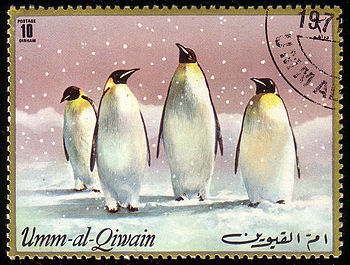Sometimes an organisation's priorities are all too evident in the way it comports itself. Let's be clear here - comportment is what you
do, not what you
say.
Some of the most egregious customer service behaviours I have seen in my professional career have been on the part of organisations which spend a lot of time and money broadcasting their customer-service values and claiming they put the customer first.
These have mostly been Middle Eastern banks and telcos, which tend to pay a lot more money pushing 'we are customer-centric' messages than they do on actually helping customers in any way. This common attitude to 'customer experience' has always confused me, to be honest. It tends to have made its way from the analogue to the digital world, BTW - these organisations under-invest in UX, search and content compared to old-fashioned one-way communication efforts and still tend to consistently confuse outreach for broadcast. And they tend to see public relations as a way of managing and obfuscating their failures rather than as a positive force.
Critically, the pain resulting from this behaviour rarely gets felt by the management taking the decisions on where to allocate resources - the customer-facing front line is stuffed with minimum wage drones who have no escalation path. Rather than listen to them, the company will issue customer opinion surveys direct to customers which invariably result in initiatives to squeeze more out of the drones rather than drive any fundamental change in behaviour.
In the case of an airline like British Airways, it's understandable that the big expensive flying machines are what matters most. You'll claim it's all about the people, but that's not really the case (comportment, remember?) - the money's in the capital equipment and shifting that equipment around with optimal efficiency (slots/routes/lading) is the ultimate key to success.
When things go wrong, for instance when your home airport is closed through fog or any other circumstance, the operational challenges can be immense. Suddenly you face the collapse of the carefully stacked house of cards that is your optimal routing/resource utilisation. Minimising time to recovery is key and, despite your loud protestations, customers tend to be one of the great inconveniences to this process. They have a nasty tendency to be where they're not supposed to be and fail to be quite where you'd like them to be.
They get, in short, in the way.
When we arrived for our scheduled flight from Belfast to find the usually minimal check-in queue was a long, snaking affair stretching almost out of the airport door, we were puzzled. We'd not been keeping up with the news - too busy doing Christmas - and found out from friends online that there had been flight delays at Heathrow due to freezing fog. British Airways - which had our email address and contact number - hadn't reached out to advise of any delays or issues.
The queue wasn't moving and there was nobody from BA 'working the line' and telling people what was happening. The boards showed later flights to LHR than ours that day had already been cancelled, which had us trying to call a friend we knew was connecting from BHD through LHR to DXB later on. Clearly her travel plans were already scuppered, even as ours still held out a dwindling prospect of hope.
After an hour or so, a tannoy advised us that check-in was slower than normal and assured us that 'we would be processed' as soon as possible. This would be my first piece of 'customer experience feedback' to British Airways.
Processed is not, as eny fule no, a 'feel-good customer experience' word.
A long time later, we were duly
processed and went through security to the departure lounges. We were on the 15.05 flight and watched the 12.05 flight departing shortly before we were due out. There was clearly a delay in the offing here, but we took heart on not being cancelled. Minutes later, the tannoy rang out - our flight was cancelled and we were to collect our bags and a 'rebooking form' from the baggage area.
The rebooking form was an A4 sheet being handed out by harassed looking baggage handlers who assured me that they had no information beyond the form, didn't work for BA and weren't responsible for anything. Repeated requests to speak to someone from BA were ignored or refused. The form itself had been knocked up in an annoying, hard to read 'handwriting' style font and carried a wrong number for the call centre and the instruction to 'call between XX:XX and XX:XX'. As the primary instrument of communication to passengers of a cancelled flight, it was pretty shoddy and almost utterly useless. At this stage the BA app and website were equally useless, showing the flight as either still departing or delayed. There was no rebooking option available on either platform. The British Airways call centre was dropping calls with a message that they were too busy to talk to us.
We hired a car and fled back to Newry for our unscheduled night's layover. By the time we arrived down the road (it's an hour's drive away), the flight was no longer showing as
cancelled, but as
delayed to 6am the next day. After 30 minutes on hold, we finally got through to the call centre, clearly managed at a distant location, which could only confirm the delayed flight or refer us back to BA.com. Because your flight is delayed and not cancelled, the message was clear, rebooking isn't really an option.
With no information other than this, we had no option but to get up at 3.30am to arrive at the British Airways check-in at Belfast City - both officially and fondly known as George Best - in time to present on time for the revised 6am flight. Once again, a long, long queue and no BA staff on hand. Getting to the front of the line, we learn BA1417 is a 'free' flight - a plane is on the tarmac surplus to requirements and they'll fill it as soon as possible and get it off when they can. As it turned out, this was finally to be at 5.30pm that day.
In all that time, BA staff were notably absent. Information and updates were just as sparse. Throughout, our fellow travellers were anxious and unsure how to act in the total absence of information, given no option but to hang around and wait for the next reluctantly divulged snippet. Families, old people, kids and all - confused, concerned and effectively marginalised - were all systematically kept in the dark.
The overwhelming theme throughout this whole process was the lack of communication or concern for the messy carbon-based life forms which British Airways claims sit at the very centre of their business. The BA app was less than useless, the website poorly structured and lacking in any useful information, transactional capability or interactivity - especially given the circumstances. The BA Twitter team pushes out platitudes but there's little empowerment on show here - they had as much information (or as little) as we did.
BA's only attempt at 'customer communication' was a badly formatted letter packed with errors and carrying no useful information. There was no proactive outreach, no attempt at interactive person-to-person communication or 'Customer Experience Management' (at one stage the Twitter team told me they'd share my comments with their 'Customer Experience Managers' which had me in stitches and, to be honest, rather fed my Twitter output for a while. I managed some 100 tweets in all, a flow of admittedly somewhat therapeutic scorn that eventually drew the attention of the dear old BBC).
It was clear time after time that BA staff had knowledge of the developing situation which they were not prepared to share with their customers. BA.com was often updated before any communication was attempted with customers waiting in the lounge, while staff would only offer information in response to direct questions - literally, if you didn't ask (pointedly), you didn't get.
We couldn't face a long haul flight directly after the BA debacle and so re-booked our subsequent flight with Emirates. It took 5 minutes using EK's website.
BA followed up the whole frustrating experience with a customer experience survey yesterday (twice, for some reason), which actually just confirmed my views of them as an organisation. Did the pilot serve us well? Was he proactive? Chatty? Good at making us feel warm and welcome?
I don't care, BA. That's not his job. His job is to drive the thing effectively and safely, not to make up for your lack of investment in customer service by bantering and pandering to your ill-served customers.
I'd like to think they could learn something from this: listen and perhaps even consider changing their behaviour as a result of the feedback. But they won't. British Airways didn't learn a thing from the Eyjafjallajökull debacle, which cost us four days of BA-induced hell back in 2010 - because every single awful lack in communications and customer care or customer experience management evident then was evident now.
So much
could change and for a relatively small investment. Because an organisation is judged not on how it acts when everything's going as expected, but how it acts when the extraordinary happens. British Airways' performance in the face of the extraordinary has been consistently, arrogantly, infuriatingly sub-par.
All it would take is reviewing British Airways' operations from the customer's point of view. It's a serious suggestion - it so clearly hasn't been done, ever.
Meanwhile, my abiding takeaway is that a 'Customer Experience Management' team is employed by this company.
God forbid. What
do they do each day?












